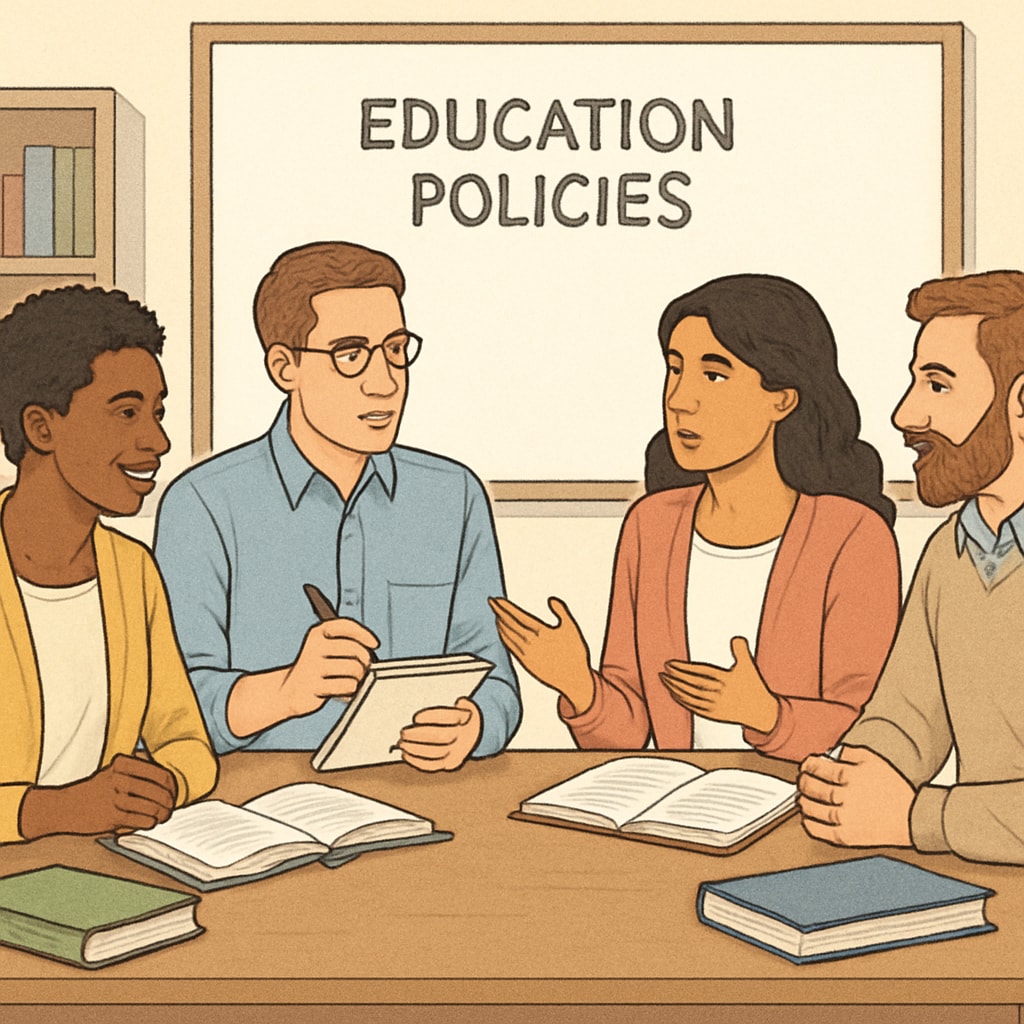Oklahoma has sparked a heated debate by introducing a controversial policy requiring out-of-state teacher applicants to undergo a political screening test. This policy, targeting applicants from states like New York and California, includes a 50-question evaluation designed to assess political beliefs. As this unprecedented move unfolds, it raises serious questions about the intersection of education, ideology, and professional ethics. The implications of this policy could reshape the K-12 education landscape and fuel ongoing debates about the politicization of the classroom.
What Is the Motivation Behind Oklahoma’s Policy?
The introduction of a political screening test for teacher applicants in Oklahoma has left many questioning the state’s intentions. Proponents of the policy argue that it is a necessary step to ensure that teachers align with the state’s cultural and political values. They claim it protects students from being exposed to ideologies deemed incompatible with Oklahoma’s educational priorities. For example, conservative policymakers have expressed concerns about progressive ideologies influencing curriculum and classroom discussions.
However, critics see this as an overreach. They argue that such a policy infringes on teachers’ personal beliefs and undermines the fundamental principles of a free and unbiased education system. By focusing on political alignment rather than teaching qualifications, the policy could discourage highly skilled educators from applying, thereby exacerbating existing teacher shortages in the state.

Potential Impacts on K-12 Education
The implications of this policy extend beyond the hiring process. First, it risks creating a homogenized teaching workforce, where diversity in thought and perspective is stifled. Students benefit from exposure to a range of viewpoints, which fosters critical thinking and prepares them for the complexities of the real world. By filtering teachers based on political leanings, Oklahoma may inadvertently narrow the intellectual horizons of its students.
Second, this policy could set a dangerous precedent for other states. If political screening becomes a common practice, it could lead to a fragmented national education system, where teachers are hired based on ideological conformity rather than professional competence. This could undermine the collaborative spirit needed to address nationwide educational challenges.
Finally, the focus on political ideology might shift attention away from pressing issues such as curriculum development, resource allocation, and teacher training. With education systems already under strain from budget cuts and increasing demands, this additional layer of scrutiny could divert valuable resources and time.

Balancing Professionalism and Ideology
The debate over Oklahoma’s policy highlights the broader challenge of balancing educational professionalism with ideological considerations. While it is reasonable for states to have some influence over their education systems, the line between governance and overreach must be carefully maintained. Policies like this risk turning education into a battleground for political agendas rather than a space for nurturing young minds.
To strike this balance, policymakers should focus on fostering an inclusive and supportive environment for both teachers and students. This includes emphasizing teacher qualifications, experience, and pedagogical skills over personal beliefs. Furthermore, open dialogues between educators, administrators, and lawmakers can help address concerns without resorting to divisive measures like political screening.
Conclusion: A Precedent Worth Reconsidering
Oklahoma’s political screening policy for teacher applicants raises critical questions about the role of politics in education. While the intention may be to protect cultural values, the potential consequences—reduced diversity, increased polarization, and a focus away from educational priorities—could outweigh any perceived benefits. As other states watch closely, this policy serves as a cautionary tale about the risks of politicizing education.
Ultimately, the goal of any education system should be to prepare students for a complex and diverse world. Achieving this requires a commitment to professional excellence and a rejection of policies that prioritize ideology over competence. As the debate continues, it is essential to remember that the future of education depends on the choices we make today.
Readability guidance: Short paragraphs and clear headings are used to enhance readability. Lists and examples are incorporated where appropriate, and overuse of passive voice is avoided. The article maintains a professional and balanced tone throughout.


